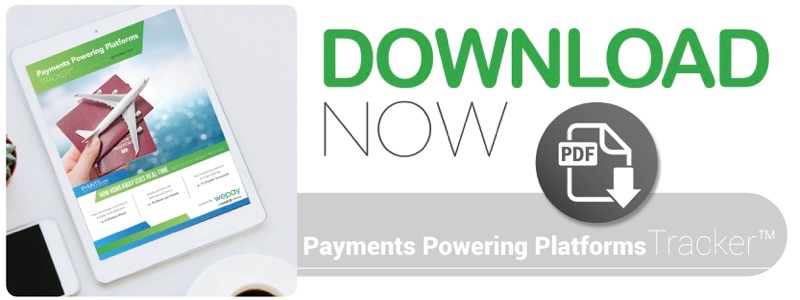NEW REPORT: HomeAway’s Payments Secret Sauce

Travel payments have long posed a challenge to airlines and hotels in the space. Payments are often expensive to process and come with a host of complexities, ranging from currency conversion to national and international regulatory compliance, to seemingly everything in between.
However, the rewards for those who are able to navigate around these travel payment roadblocks can be great. The industry brings in a massive $1.4 trillion a year, and, perhaps unsurprisingly, a host of digital players are looking to use platform payments to simplify the space and boost revenue to new heights.
In the latest Payments Powering Platforms Tracker™, PYMNTS explores the latest efforts to simplify and improve the travel process by some of the biggest names in the space.
 Around The Payment Platforms World
Around The Payment Platforms World
Google, for instance, is hoping to answer an age-old question: Am I getting the best deal?
The company recently debuted new capabilities for Google Flights. The features are designed to add transparency to the payment process, showing users whether they are getting a good or a bad deal by taking the historical price data into account.
Airbnb, meanwhile, is turning to a new partner.
The online marketplace recently partnered with corporate travel expense management platform Concur, owned by SAP. Under the terms of the new deal, Concur will integrate Airbnb’s listings into its platforms, in a move designed to increase the volume of corporate bookings made via Airbnb.
More traditional travel players, meanwhile, are increasing their investments in loyalty platforms. According to recent reports, major U.S. airlines are seeing growth in revenue beyond fares by offering loyalty and credit card rewards programs.
American Airlines, for instance, is using rewards points and promotions to boost credit card payments on flights, and card acceptance has allowed American to end cash payments for in-flight purchases. Allegiant Air and Frontier Airlines are also cashless, and, like American, are placing increased emphasis on rewards. In addition, Delta doesn’t accept cash aboard domestic flights or at ticket counters at 50 U.S. airports.
To read more on these stories and other headlines from around the space, check out the Tracker’s News and Trends section.
How HomeAway Uses Real-Time Data To Stay “Locally Relevant” 
Expedia-owned HomeAway, meanwhile, is familiar with the challenges that plague travel payments, from the wide range of currencies that must be offered to local and international regulations that must be followed, to the ever-present threat of fraud and cybercrime. That’s why the company is investing in tools like real-time data collection and analytics, according to Mike Sutter, senior director and general manager of commerce at HomeAway.
In a recent interview with PYMNTS for this month’s Payments Powering Platforms Tracker feature story, Sutter offered an inside look at how the company is working to solve those challenges and simplify the payment process.
“We use real-time data to understand how customers’ needs evolve and we’re always looking for opportunities to improve the experience,” Sutter said, noting that the company currently accepts major credit cards and seven different currencies. Going forward, HomeAway also plans to explore emerging payment options, including cryptocurrencies.
To read the full feature story, along with the latest headlines and trends, and rankings of more than 100 industry providers, download the Payments Powering Platforms Tracker™.
About the Tracker
The Payments Powering Platforms Tracker™, powered by WePay, serves as a monthly framework for the space, providing coverage of the most recent news and trends, along with a provider directory that highlights the key players contributing across the payments-integrated platform ecosystem.
